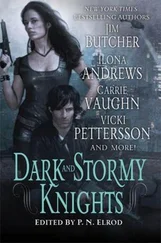She gritted her teeth and held on to the wheel; the old car wavered down the street. Maybe there was such a thing as stars in the heavens coming down to guide you somewhere and she knew there wasn’t. A dog darted out at the car and peppered the night with explosive barks as he ran alongside. Shut up! Shut up! She leaned out the window and hissed at the dog. For a few moments she felt savage with rage. All her emotions were too big for her.
The man stepped out of the light of the train station and walked into the headlights and so she jammed at the brake with both feet and killed the engine. He walked up to the driver’s side and bent down to look in, his face in the shadow of his hat brim.
“You’re Jack Stoddard’s girl,” he said. “What are you doing driving this car? In the middle of the night?” He glanced at the backseat to see her father lying there snoring, so ugly and wasted.
She said, “Oh, he’ll be all right in the morning!”
“Where do you live?”
She held on to the wheel as if she were afraid he would take it away from her.
“Down Brick Yard Road. Mister, do you know where it is?”
“Yes,” he said. “Get out so I can drive.”
She didn’t know if this was worse or better. She could have driven slowly up to the house, she could have killed the engine and glided silently into their littered front yard. She could still fix everything by herself. And maybe he wanted to steal the car.
“I can drive,” she said.
“You probably can but I am not going to let you.”
Jeanine got out and stood by the driver’s side, and reached in to turn on the ignition coil for him when he jerked the crank around. He seemed very angry.
“You’re not allowed to steal my dad’s car,” she said.
“I know that.”
She stood on the brick street as he angled his long legs inside. He picked up the sack of flour and dropped it on the floor and seated himself at the wheel.
“I can turn the crank,” she said. “I’ll turn it for you if it dies again.”
“Get in,” he said.
They passed the train station and then went in among the oil rigs that had invaded the very town itself, a dark army marching among the houses and empty lots. The horsehead pumpjacks groaned and sighed with a sound like great warm rocking chairs patiently creaking in the night. With a kind of helpless terror she saw their house and the coal-oil lamp shining in the front window.
“My mother doesn’t care if I drive,” she said.
“I’ll wager she cares if you drive home with your dad passed out in the backseat at one o’clock in the morning.”
Jeanine wiped tears from her eyes, quickly. “They’re going to fight,” she said. “She doesn’t even know he sold our team.”
Ross Everett started to say something and opened his mouth and then cleared his throat and was silent. When they pulled into the front yard she jumped out of the passenger-side door like a small acrobat. She would tell her mother that her father just now went and fell asleep in the back. Her mother came out onto the front porch. Everett climbed out of the passenger side after her and said good evening to her mother and took off his hat and then put it on again. From the next yard a hen made an interrogative, crawling noise and in the remote distance an airplane bored through the night sky. Jeanine gathered up as many of the brown paper packages of groceries as she could.
At the last minute she remembered to jerk the sack of flour from the front. It landed on the gas cock and the sack tore open and flour poured out onto the floorboards. Jeanine turned to her mother, standing at the open door with the lamp in her shaking hand.
“Thank you, Ross,” she said.
“It’s my fault for keeping him out so late,” said Everett.
Her mother nodded. “Jeanine, don’t lie for him,” she said. She put the lamp on the step and walked toward her daughter and took her hand. “Just don’t lie for him.”
They shifted out to the Permian Basin in far West Texas when the big Yates field came in. By 1928 the north-central Texas boom had played out and settled down to the sedate business of production. Wells had been driven in whatever place seemed to show even the least promise, including a dry hole on the old Tolliver farm itself. The Tolliver well had been drilled by a producer named D. H. Sullivan who was known as Dry Hole Sullivan. He just kept on drilling one dry hole after another and nobody knew how he managed to raise capital for his hopeless ventures but there’s a sucker born every minute and most of them have at least some cash to part with in order to buy one one-thousandth of one one-thousandth of the price per barrel that might come from a future or nonexistent oil well and generally these people lived in Chicago or Baltimore or someplace like that.
THEY MOVED INTO a section house in a town called Monahans. The section house had been left there by the Texas and Pacific Railroad and then afterward used as a chicken house. Then during the strike it was rented out to themselves and another family. They each had a room, and the other family asked them to turn up their radio at night so they could all hear KBST out of Big Springs. Broken eggshells littered the corners. Her father drove a saltwater pumper; the producers injected brine into the formations to keep up the pressure when the oil was pulled out. Then her father took to driving nitroglycerin. He drove a brand-new 1929 Ford half-ton with EXPLOSIVES painted down the side in silver letters and in later years Jeanine came to understand that he also delivered bootleg whiskey with this vehicle and got away with it because the various law enforcement agencies did not want to stop him or to get anywhere near him.
There was no wood to burn in their stove in that remote desert. Coal came in with the tankers that roared into Monahans to take on oil; the coal cars were always at the end of the string next to the caboose. Jeanine and her older sister ran down the line of tankers with buckets to collect coal at five cents the bucket. It was a dirty job and they hated it. They stood and watched in the cold desert mornings with other children as the coal was shoveled out in heaps into the back of coal trucks. It had a slick repellent shine to it. The men shoveling it out onto the trucks could see that some of the children had come to pick up fallen pieces. These were children in thin sweaters and busted shoes, with anxious looks on their faces. The men shoveled big scoop-loads down to them and everyone stood back and let them collect it.
They learned about the crash of 1929 at the salt well. Jeanine had heard about the salt well and wanted to go see it and one day she said she would go by herself if the others didn’t want to come with her, she would walk along the highway and out into the desert alone. She was not afraid of the empty spaces. She wasn’t afraid to skip school either and she wasn’t afraid of a whipping, since all their mother did was wave a homemade flyswatter at them. Jeanine was eleven now, she had developed a square face and a firm jaw and long gray eyes and dishwater blond hair. She and Mayme and another girl picked up stray pieces of coal that had fallen from the coal cars as they walked. They carried flour bags to collect it. They walked out into the immense flat stretch of the Permian Basin where it stretched without variation like a single note played on a wind instrument, on and on without end. The sunlight shone stark and unforgiving on the twisted brush. The blackbrush and creosote were short and drawn up into wired armatures with brief, hardened leaves.
They came to the derrick and a wellhead that was gushing salt water. The brine was ancient fossil seawater from two thousand feet below, it spouted into the air like a plume and all around it, the engine shed and the derrick itself and an abandoned car and pieces of rope and broken bailers, tin cans, crushed pipe, severed bolts, loops of cable, all were coated with crystallized salt. The fine crystals gleamed like minute gems and every piece of discarded trash shone like the jewels of the Romanovs.
Читать дальше












